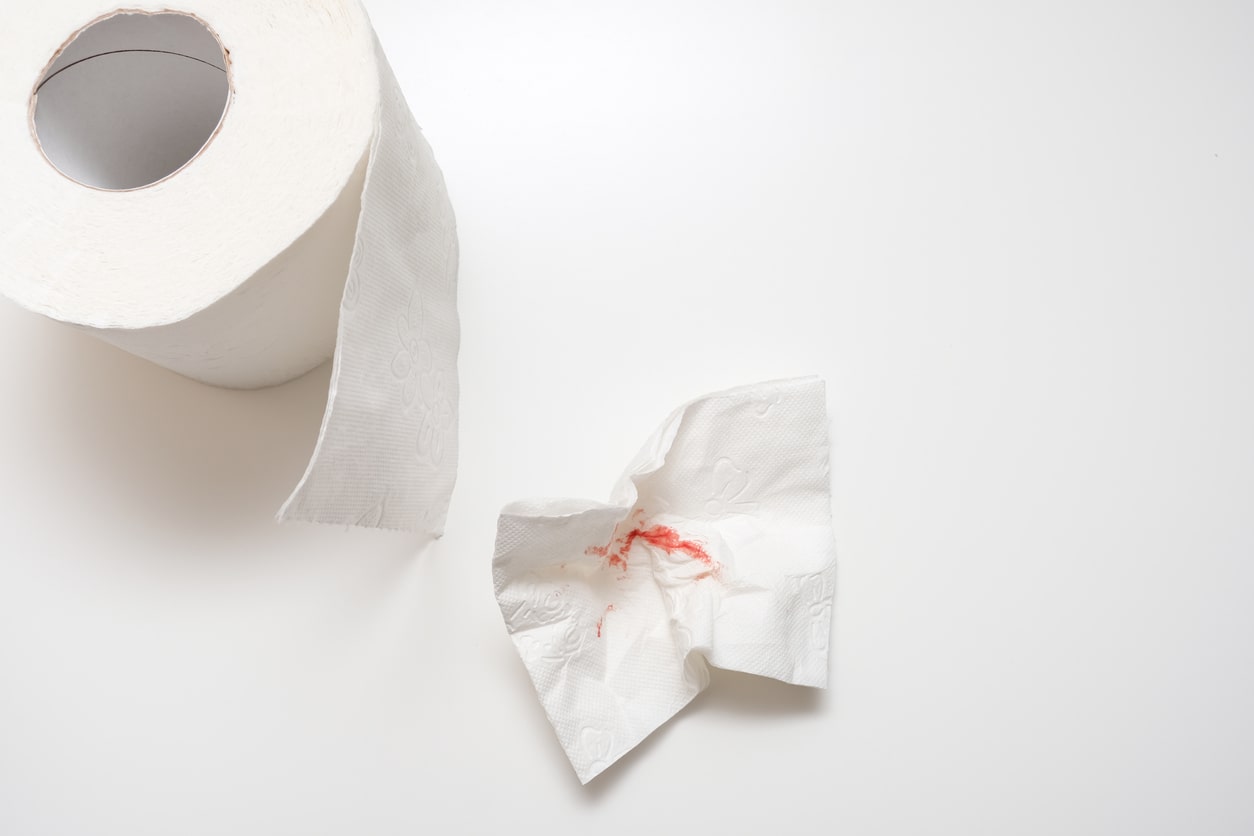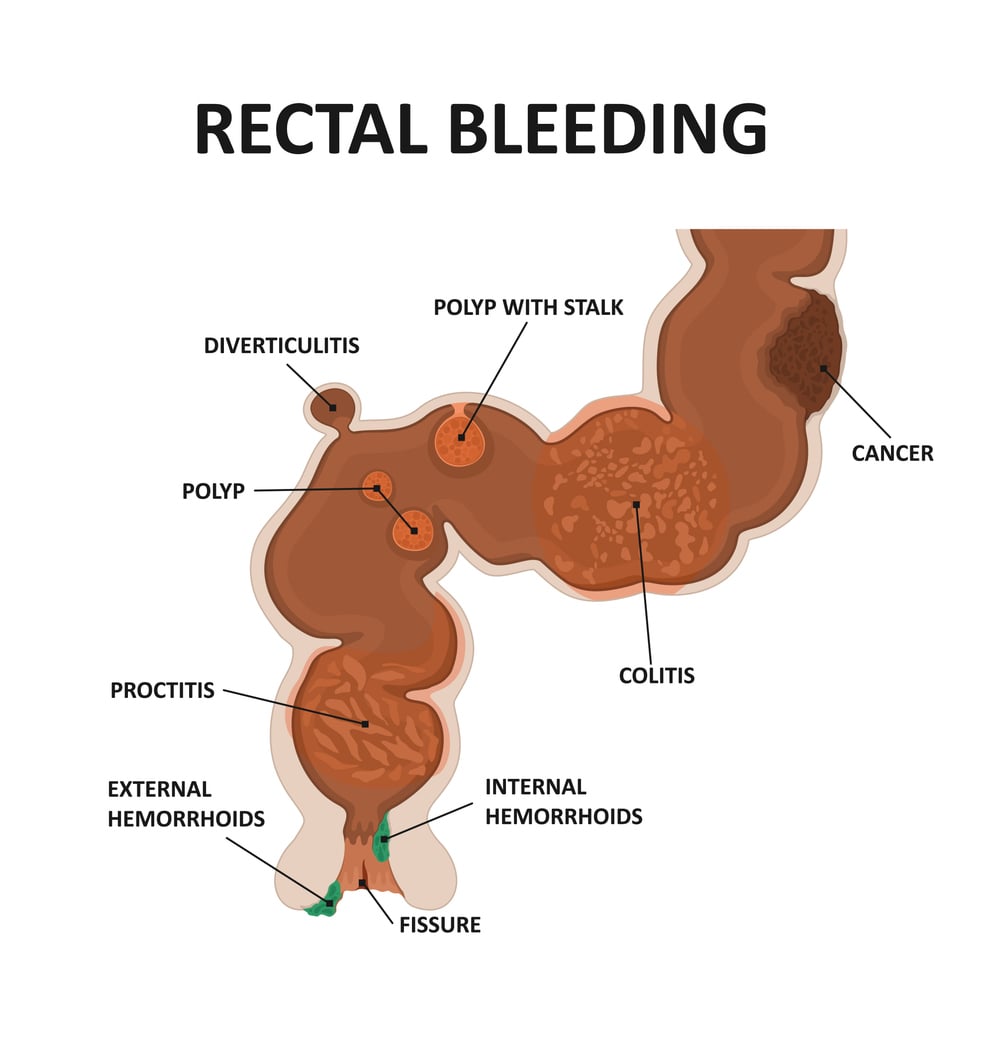
Rectal Bleeding: How to Address It
Rectal bleeding is an issue that many people experience, and it can have a variety of causes. It refers to seeing blood from your rectum or in your stool, which can be alarming. While it can result from minor issues like hemorrhoids or small tears, it can also be a sign of more severe conditions such as gastrointestinal problems or colorectal cancer. It’s important to understand that rectal bleeding can come from a variety of causes, some of which are minor and others that may need medical attention.

Common Causes of Rectal Bleeding
Various conditions can lead to rectal bleeding, some more serious than others. Some of the most prevalent causes include:
- Hemorrhoids: Swollen and inflamed veins in the rectum or anus, known as hemorrhoids, are a frequent culprit behind rectal bleeding. While hemorrhoids can be painful, they often cause bright red blood in the stool or on the toilet paper.
- Anal Fissures: These are small tears or cracks in the delicate lining of the anus, typically resulting from constipation, diarrhea, or the passage of hard stools. Anal fissures can lead to sharp pain during bowel movements and bright red bleeding.
- Inflammatory Bowel Diseases: Chronic inflammatory conditions like Crohn’s disease and ulcerative colitis can cause rectal bleeding due to inflammation and ulceration in the digestive tract.
- Diverticular Disease: This condition involves the formation of small pouches or diverticula in the colon wall, which can become inflamed or bleed.
- Colorectal Polyps: Growths or polyps in the colon or rectum can sometimes bleed and, in some cases, may be precancerous or cancerous.
When to Seek Medical Attention
While occasional mild rectal bleeding may not be cause for immediate concern, it is crucial to consult with your doctor if you experience the following symptoms:
- Persistent or Recurrent Bleeding: Ongoing or frequent episodes of rectal bleeding should be evaluated to rule out severe conditions.
- Large Amounts of Blood: Passing significant amounts of blood in the stool warrants immediate medical attention.
- Black, Tarry Stools: Stools that appear black and tarry may indicate bleeding higher in the gastrointestinal tract, which is a serious concern.
- Accompanying Symptoms: If rectal bleeding is accompanied by abdominal pain, fever, or unexplained weight loss, these could be signs of a more serious underlying condition.
- Lack of Bowel Control: Sudden or worsening incontinence, especially if accompanied by rectal bleeding, may indicate nerve or muscle issues that need medical attention.

Diagnosing Rectal Bleeding
Diagnosing rectal bleeding often involves a thorough evaluation by your doctor to determine the underlying cause. The process usually begins with a detailed medical history and physical examination, including a digital rectal examination to check for abnormalities.
Depending on the findings, further tests, such as a colonoscopy or sigmoidoscopy, may be recommended, allowing for a visual inspection of the colon and rectum. Stool tests might also be conducted to detect hidden blood or infections. In some cases, imaging studies like a computed tomography (CT) scan or a magnetic resonance imaging (MRI) scan may be necessary to identify issues in the digestive tract. These diagnostic tools help pinpoint the source of the bleeding and guide appropriate treatment.
How to Manage Rectal Bleeding
If you notice rectal bleeding, managing it effectively starts with understanding what’s causing it and taking the proper steps. Here’s how you can handle it:
- Home Remedies and Lifestyle Changes: For minor issues like hemorrhoids or small tears, some home treatments can help. Soaking in a warm bath can soothe pain, and using over-the-counter creams can reduce discomfort. Eating more fiber-rich foods, like fruits and vegetables, helps keep your stool soft and prevents constipation, which can worsen bleeding.
- See a Doctor: If the bleeding continues or is severe, it’s essential to see a doctor. They can examine you and suggest tests like a colonoscopy to determine what’s causing the bleeding. Your doctor can give you the best advice on what to do next.
- Treatment Options: Treatments may vary depending on what’s causing the bleeding. For conditions like inflammatory bowel disease, your doctor might recommend specific medicines or changes to your diet. Sometimes, more advanced treatments or procedures may be needed.
- Follow-Up Care: Keep up with follow-up visits to your doctor to monitor your condition. Following their advice and maintaining good bowel habits can help manage and prevent future bleeding.
By taking these steps, you can effectively manage rectal bleeding and address any underlying issues.
Prevention Strategies
Adopting a healthy lifestyle and dietary habits is essential for promoting proper bowel function to reduce the risk of rectal bleeding. A fiber diet rich in fruits, vegetables, and whole grains helps keep stools soft and regular, minimizing the chances of constipation and straining during bowel movements. Staying hydrated by drinking plenty of water is also key to maintaining healthy digestion. Regular physical activity enhances bowel function and helps prevent conditions that could lead to rectal bleeding.
Practicing good bowel habits, such as avoiding prolonged sitting on hard surfaces and responding promptly to the urge to defecate, reduces the risk. Routine screenings are crucial, especially for individuals over 50 or with a family history of colorectal issues, allowing for early detection and prevention of more serious conditions. Incorporating these strategies into your daily routine can significantly lower the likelihood of rectal bleeding.

Manage Rectal Bleeding with GastroMD
While rectal bleeding can be alarming, understanding its potential causes and knowing when to seek medical attention is crucial for managing your health effectively. By paying attention to the color of the blood, recognizing common causes, and adopting preventative measures like dietary and lifestyle changes, you can take proactive steps to address and reduce the risk of rectal bleeding.
If you are experiencing rectal bleeding or have concerns about your gastrointestinal health, contact GastroMD today. Our experienced team of experts is dedicated to providing comprehensive care, ensuring you receive the personalized treatment needed to maintain and protect your health.



